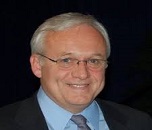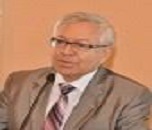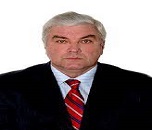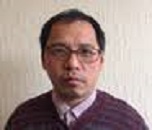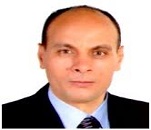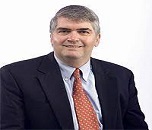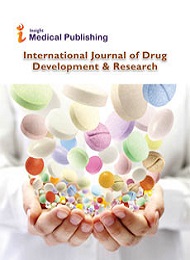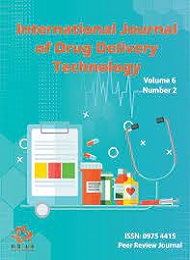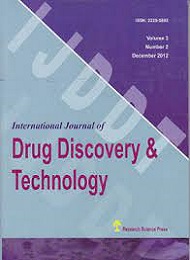Theme: Orphan drugs: Ray of hope for rare disease
ORPHAN DRUGS 2022
Orphan Drugs Conferences Committee is glad to advertise “2nd World Congress on Rare Diseases & Orphan Drugs” in Lisbon, Portugal during September 29-30, 2022.
Orphan Drugs 2022 is an International Rare Diseases Conference, encompassing genetically caused rare conditions and abecedarian exploration and development in separate field. It's a Global platform reaching across all the rare conditions around the globe, covers exploration and developments of new treatments.
Theme: “Orphan drugs: Ray of hope for rare disease”
A rare disease is described by the World Health Organization as a disease or complaint that affects one in every 1000 people. Still, rare diseases aren’t so rare these days. These conditions have seized the attention of the pharmaceutical industry and scientists over the once three decades.
This global congress on Orphan Drugs and rare diseases provides a head interdisciplinary stage for experts to introduce their most recent exploration findings and portray developing advances and comportments in rare conditions.
This Congress will bring experts from the whole value chain under one roof, where you get to meet decision-makers in the areas of your interest and unite with them for unborn exploration. The conference aims to bridge the gap between assiduity and academia by uniting biotechnologists, scientists, experimenters, croakers, orphan medicine inventors, professors, exploration associations, and experts from pharma industry, start-ups and crucial players in the Industry.
Join your peers around the world concentrated on learning about Orphan Medicines and affiliated advances, which is your single stylish occasion to reach the largest assemblage of actors from the Orphan Medicines community, conduct demonstrations, distribute information, meet with current and implicit professionals, make a splash with a new exploration workshop, and admit name recognition at this 2- day event. World-famed speakers, the most recent exploration, advances, and the newest updates in Orphan Medicines are emblems of this conference.
Target Audience:
- Professors & Faculty Members
- Comapany CEOs & Founders
- Research Groups
- Start- Ups
- Regulatory Authority Representative
- Patent Attorneys
- BD Managers
- Directors, Presidents, VP
- Industry Research Scientists & CSO
Track 01: Orphan Drug Therapeutics
Orphan therapeutics is pharmaceuticals used to diagnose, help, or treat life-changing or life-altering conditions or diseases that are rare. Because of the small case groups needed for clinical trials, orphan medicine development is particularly delicate. By description, rare conditions affect smaller than Americans, with some affecting only a many hundred. There are about 7000 circumstances like this. Because the pharmaceutical business has little interest in developing and promoting treatments for a bitsy number of cases, these medicines are appertained to as "orphan" medicines. The exceptionally high cost of bringing a remedial product to the request would not be covered by prognosticated deals, according to medicine makers. As a result, the prospective request for new pharmacological treatments is minimal, and the pharmaceutical assiduity would suffer a financial loss as a result. The FDA has handed several gratuities and impulses to medicinal and exploration businesses to help with drug development and treatment choices for orphan diseases.
- Challenges in Orphan Drug Development
- Drug Repurposing/Repositioning
- Regulatory Considerations for Drug Repurposing
- Future Perspectives
Track 02: Rare Genetic Diseases/Disorders
A genetic complaint is a medical condition caused by one or further gene mutations. A chromosomal abnormality or a mutation in a single gene (monogenic) or multitudinous genes (polygenic) might beget it. Because of the high number of inheritable abnormalities, one out of every twenty-one people is affected with a" rare" inheritable complaint (generally defined as affecting lower than 1 in people). The maturity of inheritable conditions is rare in and of itself. The prevalence of rare disorders is used to define them rather than unifying pathological or clinical criteria. Rare conditions cover a wide range of pathologies and pathogenesis mechanisms since they're distinguished by their low frequency. Rare inheritable conditions serve as a springboard for uncovering new biology that has far-reaching counteraccusations for common mortal diseases. Changes in DNA are intertwined in the cause of around 80 rare diseases. Indeed if the symptoms are not constantly apparent, numerous conditions are present throughout a person's life. Rare Endocrine Genetic Diseases
- Paediatric Rare Genetic Disorders
- Rare Disease Genomics
- Detection of Rare Genetic Diseases
Track 03: Challenges in Rare Diseases
With strict rules executed for unprecedented infirmities, it's to a great degree delicate to share in phenomenal sickness ask about on a subject without the backing of a clinician also constraining the clinical trials limited keeping in mind the end thing to have a trust of filling them. Generally, there's an insufficiency of benefits for exploration on exceptional conditions of disseminates included with a little request degree and nonattendance of being written work and endured specialists are some huge challenges. 452 medicines and inoculations being produced for remarkable conditions use stimulating new coherent and particular data. A strong bit of the specifics, which offer look for after those anguish from one of the rights around unknown conditions, address imaginative better ways to deal with target affliction.
Track 04: Orphan Drugs Clinical Research
Clinical trials funding for orphan products have been shown to be a viable technique of fostering and promoting the development of novel, safe, and effective medical products for rare diseases and conditions. Orphan drug clinical development is both challenging and exciting. There is no single aspect that is truly unique to it; rather, it encompasses the majority of the challenges: design, outcomes, recruiting, ethics, cost, probability, and predictability. To solve these challenges, academic institutions, small and major pharmaceutical firms, patient representatives, and health authorities must work together to give assistance and creative ideas. The ultimate goal is to provide medications with a good benefit-risk ratio to individuals with unmet medical needs. FDA is focusing their efforts with a new funding opportunity to facilitate and move new therapies along in drug development in a safe and efficient manner by encouraging innovative clinical trial methods such as adaptive and seamless trial designs, modelling and simulations, and basket and umbrella trials to address the remaining unmet need and lack of treatments for the majority of rare diseases. These techniques are critical for effective trials and data analysis, which can help speed up drug development.
Track 05: Global Rare Diseases and Orphan Drug Market
A rare complaint, occasionally known as an orphan complaint, is one that affects a small proportion of the world's population. Indeed if symptoms may not develop incontinently, the maturity of these rare conditions is inherited and present throughout a case's continuance. There has been an increase in the circumstance of rare conditions each across the world. An orphan medicine is a pharmaceutical product used for the opinion, forestalment, and treatment of colourful rare conditions or conditions, according to the European Organization for Rare Conditions. These conditions are distinct from other conditions in that they've a veritably low frequencies rate relative to other conditions, and so are bought by a veritably limited patient population. The global orphan medicine request was valued atUS$147.56 billion in 2019 and is prognosticated to grow at a CAGR of 10 toUS$413.36 billion by 2030.
- Business Strategies
- Research & Development Activities
- Supply Chain Analysis
- Competitive Landscape
- Market Composition Analysis
- Analysis and Forecasts
Track 06: Advancing Research for rare diseases
Rare disease research is difficult due to the scarcity of patient information on the conditions. Because there are so few people affected, patient recruitment for clinical studies might be very difficult. To address these difficulties, a number of charities, patient advocacy organisations, and government agencies have developed online registries to collect patient data for researchers, doctors, and public health experts to use. It's crucial to remember that study into the aetiology, processes, and treatment approaches of rare diseases can help to advance advancements in common diseases. Rare diseases are biologically complex, and scientists are working hard to figure out what causes them and how they progress clinically. As researchers identify the molecular and genetic drivers of many diseases, we've witnessed amazing progress in the creation of medicines to treat patients with rare diseases.
Track 07: Living with a Rare Disease
Uncommon Dis temperatures are a different miscellaneous gathering of affections with a little in like way beside of their abnormality impacting with affecting the people. 80 of uncommon ails have honored inheritable origins and others may have some natural factors, there are wide and a many which are yet to be analysed. Some uncommon ails are gained while some impacted people go about as Conditions audited. Notwithstanding anomaly, they speak to a critical medicinal and medical issue due to their event. For different uncommon distemperatures have no treatment, still in the event that it exists and if began on time as conveniently accessible to cases, there's a decent conjecture for them to be able for typical life. The issues of cases reflected and affected by uncommon distemperatures are related to the nonappearance of conclusion and accessible passing and their treatment or balancing exertion.
Track 08: Genomics and Proteomics of Rare Disease
Despite our understanding of the inheritable mutations that uphold uncommon conditions, little is known about their cellular impacts. Because developments in genome sequencing have far surpassed the throughout in functional follow-up examinations, functional studies on rare conditions have fallen behind gene identification. Likewise, pharmaceutical and biotech enterprises have many impulses to invest in medicine exploration and development for conditions that only impact a small number of people. Rare conditions have always been delved at the cellular position on an individual base. A study published lately phenotyped a library of rare complaint-causing variations and their wild- type alleles in detail. Whole-genome sequencing can give sapience into the genetics of rare diseases; it can miss up to half of the cases that are screened. The experimenters discovered that integrating proteomics and genomics increases rare complaint individual delicacy.
- Protein Modification
- Protein Translation
- Genomic Studies
- Transcriptomics
Track 09: Overview on Rare Diseases
An orphan drug is a pharmaceutical specialist that has been produced particularly to treat an uncommon remedial condition, the condition itself being indicated to as a fugitive sickness or uncommon infection. Fugitive specifics for the utmost part take after an indistinguishable executive advancement way from whatever other pharmaceutical item, in which testing concentrates on pharmacokinetics and pharmacodynamics, dosing, security, good and acceptability. In any case, some factual weights are dropped with an end thing to keep up enhancement force. The enhancement of fugitive specifics has been fiscally boosted through US law by means of the Orphan Drug Act of 1983.
Track 10: Patient Concerns for Orphan Drugs
Orphan medicines are vaccines or antibodies proposed to treat, avoid or assay an orphan complaint. Cases of rare affections incorporate inheritable conditions, uncommon tumours, infectious tropic affections and degenerative infections. The meaning of uncommon affections shifts cornerwise over wards yet generally considers disease commonness, soberness and presence of indispensable remedial options
Track 11: Gaming and Abuse of Orphan Drugs
The 1983 Orphan Drug Act was planned to give compose associations liberal motivators to produce particulars that may not generally appear to be salutary gambles. Organizations regularly apply for a fugitive drug assignment ahead of schedule in the drug advancement handle. On the off chance that a fugitive drug is at last championed for the request, the FDA postpones the US$2.17-million customer charge that associations must pay to the FDA for new specifics. The associations also get put credits for caused clinical- trial costs, alongside seven times of request restrictiveness, amid which time signatures for relative specifics are blocked.
Track 12: Pharmacology and Toxicology
Due to the unique characteristics of rare diseases, developing specifics for them might be delicate. The oddity of a condition makes medicine development delicate. Due to a deficit of people, well- designed clinical trials to demonstrate efficacy can be delicate to conduct, and studies substantial enough to determine major hazards are nearly insolvable to do. When no other options are available, cases may be ready to risk side goods in exchange for implicit benefits, but the benefit-to- detriment balance is delicate to quantify and may be unfavourable in some situations. Clinical pharmacology, a translational discipline, is a critical element of medicine development, including remedial development for rare conditions. Health directors have fiscal challenges when it comes to innovative medicinally, particularly orphan medicines. Individual rare diseases impact a small number of people, yet they inclusively affect a significant portion of the population. They bear our assistance.
- Drug Repurposing
- Safety Assessment
- Clinical Trials
- Patient Involvement
- Translational Research
- Clinical Pharmacology
- Orphan Drug Development
Track 13: Revolutionary Changes
Regrettably," rare diseases" has historically been low on the public health agenda, a fact that the 350 million individuals worldwide who suffer from these conditions are well apprehensive of. This is unsurprising since, while each of these rare conditions has too little a health burden to make a simple health-economic justification, rare conditions are allowed to be just as common as other diseases. Rare complaint discovery and operation is an illustration of an area that has served from technological advancements. The integration of new drugs for rare conditions into being care systems, on the other hand, calls into question a translational drug premise that there's a direct pathway from bench to bedside. In mindfulness of the impact of patterns of clinical interventions and associated health services on cases and their families' quality of life, a range of case-acquainted issues may be most applicable to examine for incremental curatives.
Track 14: Entrepreneurs Investment Meet
A stage meant to associate Entrepreneurs, Proposers, and Investors around the world. It's anticipated to make and encourage the most advanced and reasonable meeting place for drawing in individualities in worldwide business addresses, assessment, and prosecution of promising business studies. A fiscal specialist might discover the most noteworthy implicit enterprise openings widely, which give a great degree of profitability. For business people, this would be a perfect place to discover reasonable bookmakers and cohorts to begin as well as grow their business. In this way, it's an indefectible place to associate Entrepreneurs, Business Owners, Early Stage Companies, and Established Corporates with National or International Investors, Corporate Investors, and Implicit Business Mates.
Track 15: Rare Diseases and Ultra Rare Diseases
Interest in rare diseases has expanded in recent times, as substantiated by politicians and health authorities' dockets, yet ultra-rare conditions still admit far too little attention. Although no legal bracket of an “ultra-rare" complaint has been created, the National Institute for Health and Care Excellence has informally designated this subcategory for specifics having suggestions for diseases with a frequency of lower than one in per 50 000 people. The approach, by which ultra-rare complaint exploration should be conducted, as well as the question of quality, is both critical considerations. Although lower strict criteria may be used for orphan medicinal than for medicines treating more current conditions, this shouldn't be used as a reason to deny people with rare conditions the stylish available treatment. When a case is diagnosed with a rare or ultra-rare condition, having the correct croakers and treatment plan is just as vital as having a support system.
Nearly there are different types of Rare Conditions and diseases it has estimated that 30 million people in the United States, 30 million in Europe and 350 million people over the globe suffer from Rare Conditions. Four by fifth of Rare Conditions are inheritable in origin, among them affected individualities 50 of them will be children. The Rare Conditions are distributed in such a way that four fifth of the cases reckoned by some 350 Rare Conditions. About only 5 of rare conditions are having approved medicine treatment with only 326 new medicines being approved from the FDA and brought in to the request.
In 2018, Orphan Drug deals were of the order of 93 billion. Orphan Medicines represented 35 of the assiduity’s new medicine blessings. The inheritable conditions are subdivided by remedial area, which was leading the global request in the history will show analogous traction in the coming next eight times. This member is anticipated to be valued atUS$ by the end of 2025. According to Statistics of MRC, the Global Orphan Drug request is estimated at$145.89 million in 2018 and is anticipated to reach$265.63 million by 2022 growing at a CAGR of10.5 from 2018 to 2022.\
Orphan drugs 2022 provides best platform to expand your network, where you can meet scientists, authorities and CROs from around the world. It’s your time to grab the opportunity to join Orphan drugs 2022 for promoting your research article and to facilitate prestigious award in all categories. In this fame, we look forward for your contribution and astonishing dedication to make our Orphan drugs 2022 more successful.
Conference Highlights
- Orphan Drug Therapeutics
- Rare Genetic Diseases/Disorders
- Challenges in Rare Diseases
- Orphan Drugs Clinical Research
- Global Rare Diseases and Orphan Drug Market
- Advancing Research for rare diseases
- Living with a Rare Disease
- Genomics and Proteomics of Rare Disease
- Overview on Rare Diseases
- Patient Concerns for Orphan Drugs
- Gaming and Abuse of Orphan Drugs
- Pharmacology and Toxicology
- Revolutionary Changes
- Entrepreneurs Investment Meet
- Rare Diseases and Ultra Rare Diseases
To share your views and research, please click here to register for the Conference.
To Collaborate Scientific Professionals around the World
| Conference Date | September 29-30, 2022 | ||
| Sponsors & Exhibitors |
|
||
| Speaker Opportunity Closed | |||
| Poster Opportunity Closed | Click Here to View | ||
Useful Links
Special Issues
All accepted abstracts will be published in respective Our International Journals.
- International Journal of Drug Development and Research
- Journal of Rare Disorders: Diagnosis & Therapy
- International Journal of Drug Research and Technology
Abstracts will be provided with Digital Object Identifier by



